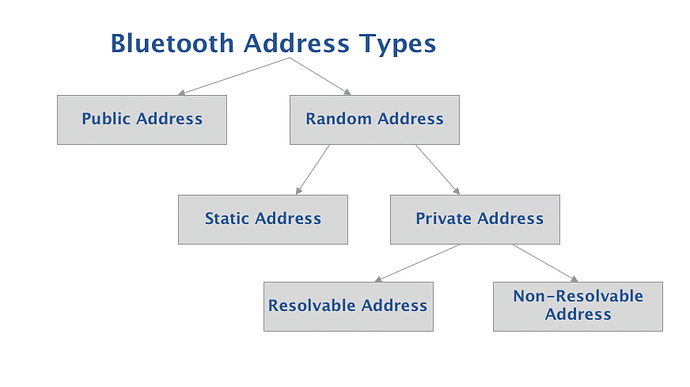- Referred to as a Bluetooth MAC address is a 48-bit value that uniquely identifies a Bluetooth device
- There are two main types of Bluetooth addresses: public and random

Public Address §
- A global fixed address must be registered with the IEEE
- Follows the same guidelines as MAC address and will have a 48-bit extended unique identifier
Random Address §
- More popular than public ones since they do not require registration
- It can be programmed into the device or generated at runtime
- There are two types: static and private
Random Static Address §
- An alternative to the public address can be assigned and fixed for the lifetime of the device or it can be changed at boot
- It cannot be changed during runtime
Random Private Address §
- There are two types: resolvable and non-resolvable
- Used to protect the privacy of a Bluetooth device by hiding its identity and preventing tracking
Resolvable Random Private Address §
- Designed to prevent malicious third parties from tracking the device while still allowing one or more trusted parties to identify the device of interest
- It is resolvable using a key shared with a trusted device — this is the IRK
- Generated using an IRK and a random number
- This address changes periodically (recommended to change it every 15 minutes)
Non-Resolvable Random Private Address §
- This type changes periodically
- Unlike resolvable address, it is not resolvable by any other device and its sole purpose is to prevent tracking by any other BLE
- It’s not very common but is sometimes used in beacon applications
